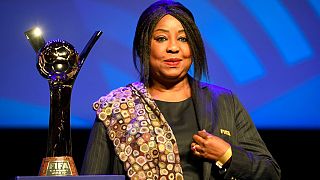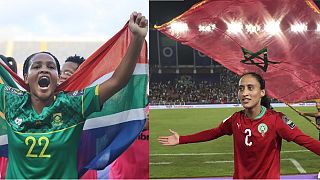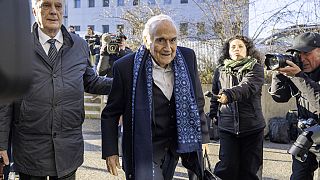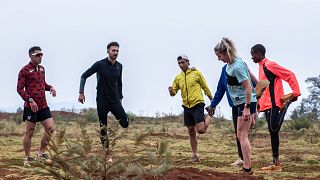Football Planet
The African Cup of Nations for Women has kicked off in Morocco. Between Rabat and Casablanca, the 12 best teams on the continent will compete until July 23 with the aim of getting four tickets for the next World Cup.
CAF vice president, Kanizat Ibrahim is also president of the Organizing Committee of African women's football. The Comorian leader shared her excitement about the tournament, the development and the prospects for women in African football.
"Women's football is obviously a priority for CAF and this African Cup of Nations will be very special because it is simply the first under the mandate of President Motsepe. We have gone from 8 to 12 teams which means more matches, more spectacle and beginners too. We also increased the financial endowment from less than $1 million to $2.4 million, a 150% increase. We have also introduced the VAR which is present in all the matches since the beginning and it will be so until the end of the competition. We also have four World Cup players who will participate in the World Cup. It is obvious that this twelfth edition will forever redefine the history of African women's football."
With the women’s tournament and the upcoming second edition of the CAF Women Champions League in October, Morocco is emerging as the promised land of women's football in Africa.
The Kingdom has been able to put in place the necessary actions whether it be at the level of infrastructure or training of talents.
"The policy of Morocco is extraordinary. At the time of its first two participations, in 1998 and 2002, Morocco did not look good in terms of women's football. For almost three years, Morocco has been working hard to develop its women's football through infrastructure, the choice of qualified people, and financial means. It's a real revival for women's football and what's happening here is extraordinary."
On the field, Nigeria remains the driving force of African women's football, with 9 continental titles. The Super Falcons are admired and inspire other nations like South Africa, and Cameroon to surpass themselves and offer new visibility to their sport.
_"We see stars like Asisat (Oshoala of Nigeria) and Thembi (Kgatalana of South Africa) shining through and they are models of success at a time when stereotypes, cultural and social barriers are still a hindrance to the development of women's football, it is good to build on these models._The same goes for sponsoring. Women's football needs more sponsors, more support."
But it also goes beyond football. There are now many initiatives to raise awareness about gender-based inequalities and the importance of education for young girls. A case of elite football serving the grassroots.
"For the youth, we have introduced the Pan African School Program which is very dear to President Motsepe. The girls who are reached by this program can afford to dream of a career in women's football. We develop aspects for the education of the girl child as well because education is the key to success. It for us to offer career opportunities and in football, there is a lot of room for women and I remain really optimistic about the future of African football."
Indeed, optimism. And on a different level, including on the field of play where there are hopes for a more impressive showcase in the world cup: one that can surpass the quarterfinal outing reached by Nigeria in 1999.













00:42
Morocco shines at women’s AFCON 2024 with thrilling win over DR Congo
02:05
WAFCON: Super Falcons fans optimistic about the team's performance
00:53
Former Nigeria goalkeeper Peter Rufai dies at 61
02:07
Morocco explores its digital future at the 2025 Morocco Gaming Expo
Go to video
Moroccan museums open doors for free to inspire youth pride and cultural connection
Go to video
Women redefine Gnaoua at Essaouira Festival